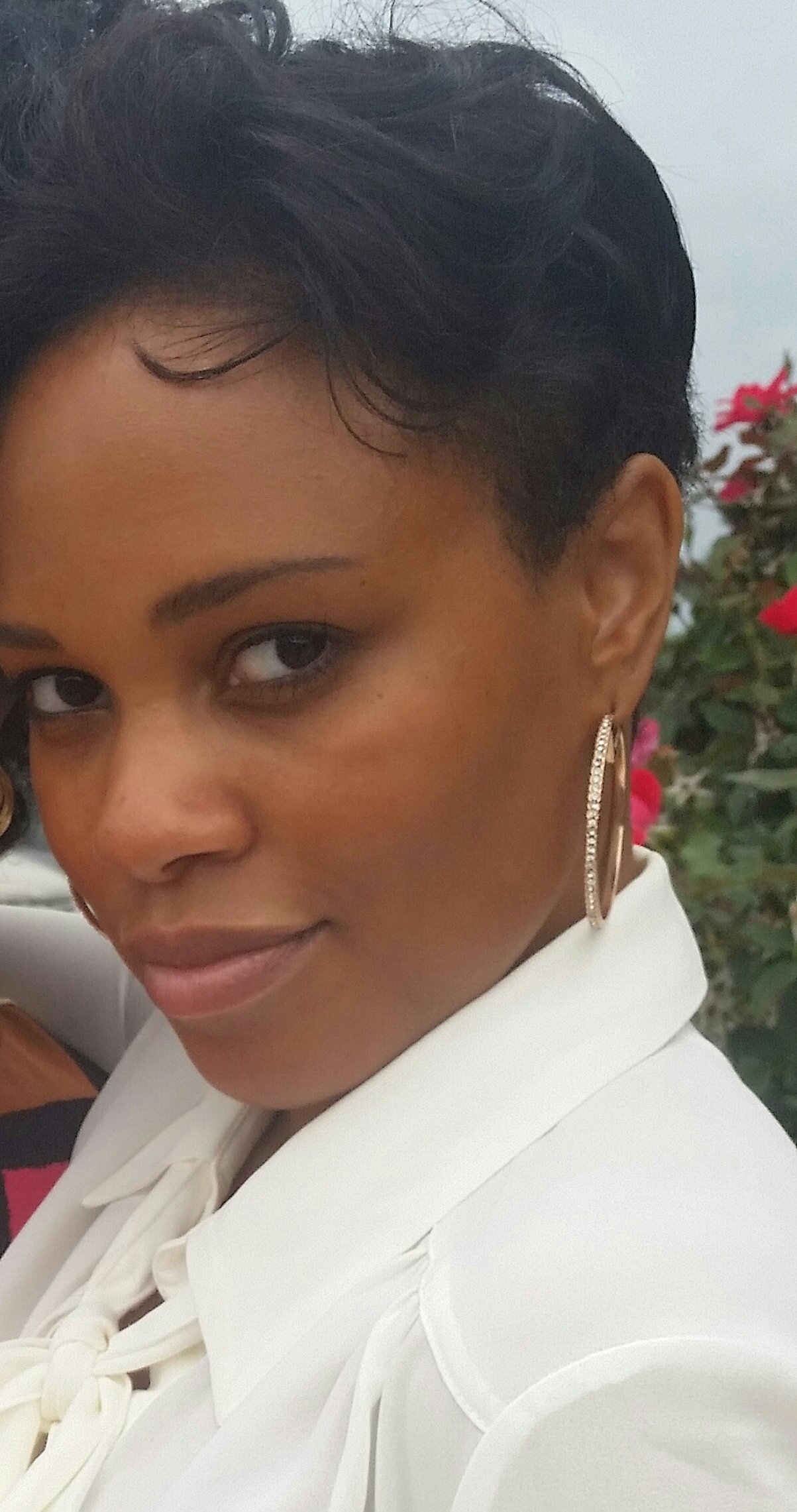Alesha Thomas: I really love what you just said. You said the season of one’s life, and, for me, that really put it in perspective. As women, as individuals, we go through so much, and I think we really, really put a lot of stress on ourselves, but just knowing that there’s a season, there’s a time for everything helps calm down those feelings of stress. I think that’s important to just remember that there’s a season to everything, there’s a time for everything.
Niki Brown: That is correct. That is correct. Alesha, you even saying that is right, because you’ll come into a season in your life, and it just feels so overwhelming, because maybe there’s a project that you’re working on, and while that project is happening, your kids are going crazy, and, all of a sudden, the car breaks down, and then, all of a sudden, cousin Nae Nae goes to jail. Everything seems to be happening, and sometimes we can get so overwhelmed we make radical decisions in that moment, when it’s really just a temporary season. We have to, also, teach women how to balance yourself in the storm. The storm is temporary, but sometimes we can make permanent decisions. We can quit jobs. We can let go of our dreams, because we feel like the storm has now become a way of life, when really when you look back on it, it’s really been two weeks, two weeks you’ve been going through quite a bit. It feels like it’s never going to end, but it will, because there are certain things that we can do to get some of those things off our plate.
The other thing I think, too, Alesha, we don’t do enough of, is we don’t delegate our authority enough. We do this whole superwoman role. We wear this cape. I’m going to handle it. I’m going to do it. I can’t trust nobody. Nobody can do it better than me. Well, we’re the only ones going to bed crazy and all frustrated, but we have to learn to delegate our authority, and really begin to assess who is with me, who is in my environment? What can I let go of, and give to somebody else to do. No, it will not look like how I would do it, but is that the most important? Will it get done, and those are the things that we have to really be able to hone in on and do.
Alesha Thomas: Niki, at your conference, there were women from all walks of life, but there were, also, women consisting of various age groups. You and your speakers were able to connect and identify with every single person there. It was amazing. Everyone could relate to what you were saying. Sitting next to me, I had a woman who must have been in her sixties, beautiful woman in her sixties, and then right behind me were millennials my age, from twenty-five to thirty. We all were so drawn into what you all were saying, and I know that we all took something away from it, because we had our notebooks out, and we were writing information down.
For those who perhaps may falsely believe that empowerment and life coaches are concretely for women who are well into their careers, who have an established family, who are over the age of thirty-five, married, settled down, whatever may have you, what advice would you give, not only to those women, but, also, to young women, say millennials, who are looking for counsel as well, who may not be so set in their careers, but are looking for clarity, and even looking to find themselves?
Niki Brown: Yeah. I think millennials are the best ones to get life coaching. Alesha, historically most people … Let’s just talk about African Americans. We don’t even call out for help unless we’re in a crisis, and by the time we call out for help, and the crisis and what we’re dealing with is so much, even the counselor and the coach feels overwhelmed. We wait, and we wait, and we wait, and these are the women who are already in their thirties and forties, who have sat in a job for twenty-five, thirty years, only to find out, “Oh, my God, I’ve made the wrong decision. I’ve been sitting here for twenty years,” whereas some people may think life coaching is only for that age, honestly speaking, life coaching really should start when you’re in the millennial age, because you haven’t made any major life decisions yet in your relationships, in your career. Maybe you’ve made some major decisions in your schooling, but, hey, you’re still young enough to turn around. When you’re in your thirties and forties, and you’ve got children, and you’ve got bills to pay, and you’re walking already in a certain career path, a professional, it is so much harder to turn around and say, “I’m going to start all over again, because this has been the wrong path I’ve been walking on for ten to fifteen, twenty years.”
The first thing I would tell millennials is you absolutely need a life coach. It’s like being in high school or college, and you have a college guidance counselor there to guide you, and that’s what a coach does. A coach says, “Hey, before you take this job, let’s really look at all of your skills and assets so far. Let’s start off right from the gate knowing who you are, so you don’t have to figure it out by the time you’re thirty-five and forty, and you’ve wasted twenty years in a place that never really defined you, that never really confirmed you.” What I would say to millennials is you should get a life coach, and it’s the best season and time to get a life coach.

